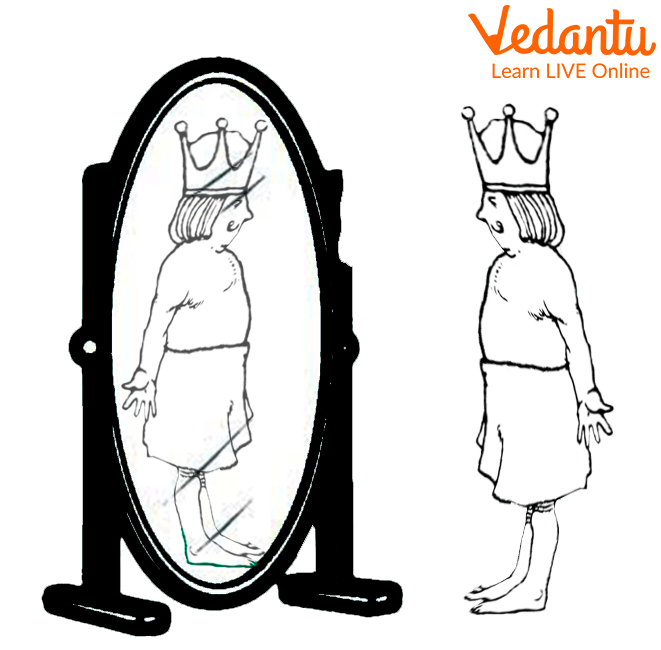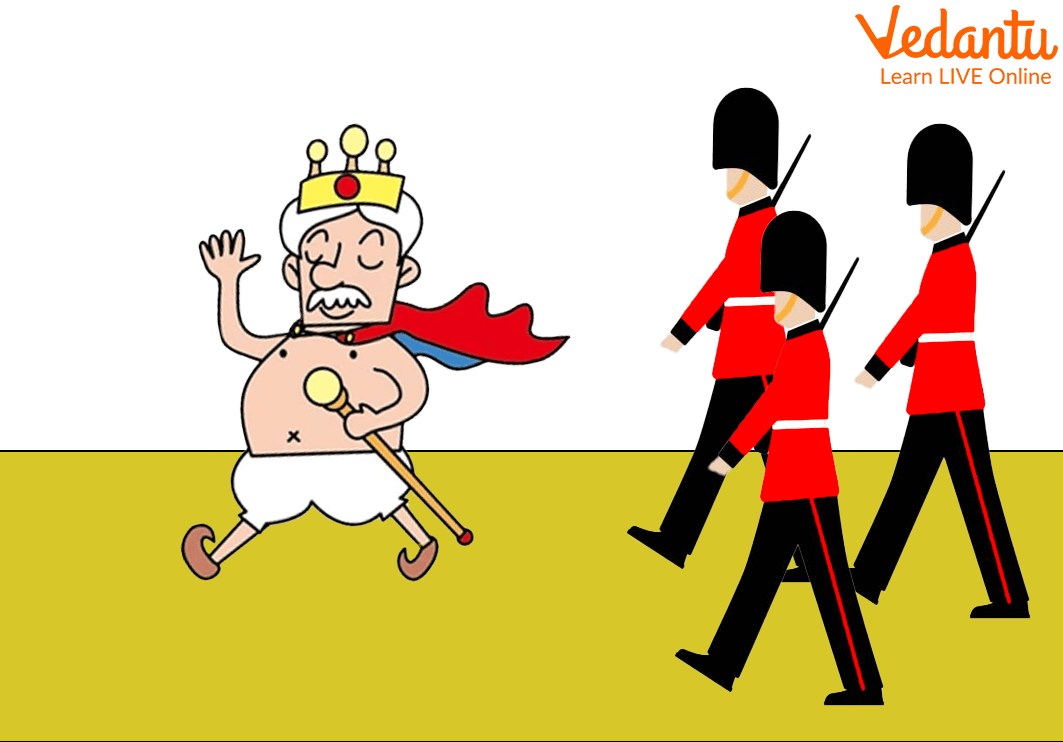The Emperor’s New Clothes – Short Story

Don’t you like short and sweet bedtime stories that are great to listen to while also being rich in morals? If so, then the story of the emperor’s new clothes will surely tickle your curious mind. Like any other parable, the story of the emperor’s new clothes also has some hidden messages that are indeed important in people’s lives and which need to be remembered once in a while to harbour the innocence in us.
Short Story on the Emperor’s New Clothes
A long time ago, there lived an Emperor who was so very fond of new clothes that he would spend all his wealth simply on dressing well. The emperor cared least about his soldiers, visiting the theatre, or going out for a carriage ride; he would only do all this if he needed to show off his new clothes. He owned a coat to wear for each hour of the day. This behaviour of his became so common that instead of chanting, "The King is in council", the people of his kingdom preferred saying that the Emperor was in his dressing room!
A lot of new people regularly visited this delightful kingdom. And one fine day, a couple of swindlers came to the court disguised as weavers. They proudly announced that they could present the emperor with clothes made out of the most magnificent fabrics that one could think of. Not only would their colours and patterns be extraordinary, but the clothes would even become invisible to anybody who was not clever enough for the emperor’s office, or someone who was really stupid.
This idea caught the emperor’s fancy and he quickly decided to get these clothes for himself so that he might be able to identify the stupid men in his court and get rid of them. Without wasting any time, he ordered the swindlers to weave him a majestic suit out of the cloth they have been talking so much about. Upon receiving his orders, the sly weavers got down to work after obtaining an elaborate arrangement of gold cloth, the finest silk, and a couple of looms. They decided to keep the valuable things for themselves and made it appear as if they were working very hard. The emperor, slightly doubting his ability to see the suit, asked his trusted minister, who he thought would be clever enough, to check the progress.
As obvious as it can be to us readers, the minister was unable to see the cloth. But he had a prestige to uphold, he could not let the emperor and his people think of him as a fool. So, when the weavers cunningly asked him how the suit was looking, the minister made false remarks on its appearance, even though he could only see empty looms.
The swindlers kept on asking for more money and good cloth, pretending to be working on this brilliant suit. The emperor had no option but to provide them with whatever they wished for. After all, he was highly excited about his new attire. However, he was getting impatient and sent another courtman to verify the progress. This man too was unable to see the cloth, quite obviously. But determined not to let others know of his stupidity, he kept this a secret and told the emperor that the cloth looked magnificent.
The next day was the day the emperor was to lead a grand procession. He wished to see the cloth for himself before the important day. But, to his utter astonishment, there was nothing to see! Completely fooled by the swindlers, the emperor fell prey to his own lack of confidence, as did the rest of his attendants who had checked the suit before. Likewise, he passed pleasant remarks to the weavers and agreed to wear that the next day.

The emperor looking at a mirror admiring his new clothes
On the day of the procession, the weavers dressed the emperor in this make-believe suit and the emperor came out in front of the crowd just as you clever kids would imagine. Yes! Completely naked! The emperor wasn’t actually wearing any clothes! The crowd was initially stupid enough to believe that the emperor had clothes on and that they were the ones who could not see them.

The emperor walking the procession naked
Suddenly, a child shouted out to the emperor, “You aren’t wearing anything! You are walking naked!”
His father got nervous and tried to stop him, but it was already too late. The people now came to realise that the emperor was indeed without clothes. They started laughing and giggling at the hilarious sight.
The emperor was now aware that the swindlers had fooled him and his people. But it would be beneath him to act out at that moment. So, he decided to walk with even more pride and glory. This made him look even funnier and it became an incident that his people would never forget.
Conclusion
The king finally realised his mistake and ordered his soldiers to arrest the swindlers, but they had already fled with the gold and all the money. The child was the only one to see through the falsity since he was innocent. He believed in himself more than in what others had to say. He believed what he saw with his own eyes and trusted his own senses. The adults were doubtful of themselves and also fearful of their emperor and neighbours.


FAQs on The Emperor’s New Clothes – Short Story
1. Why did the emperor and his people believe the swindlers?
The emperor and most of his people who heard the swindlers were adults, and they were less confident about their own senses and abilities and trusted more in what outsiders had to say about them. The terms “foolish”, “stupid”, and “unfit” are generally taken as demeaning. To avoid being called such words, the adults chose to believe the words of the swindlers. They even reached a point where they were lying to themselves so that they did not think of themselves as losers.
2. Why was the child able to see the truth?
The child was innocent and his mind was not acquainted with complex emotions like pride, ego, and blind fear. He believed in his ability to reason and used his senses rationally to judge what was true and what was not.




